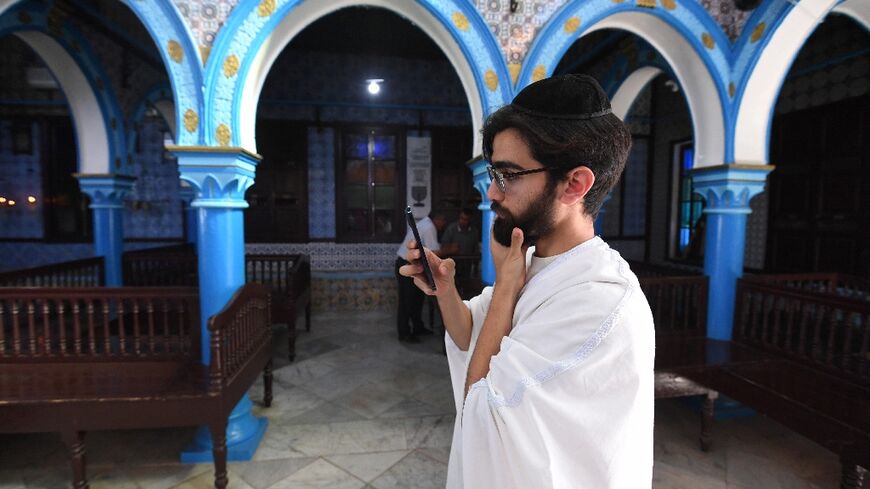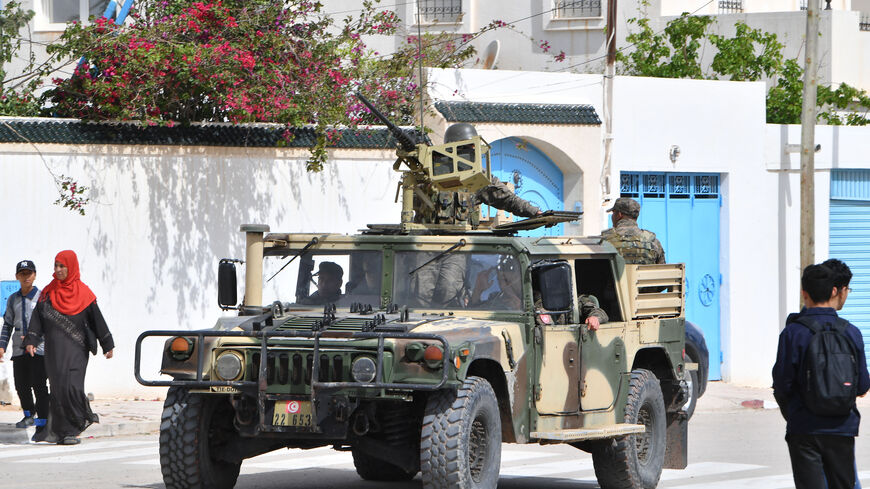Tunisian president evokes 'tolerance' after synagogue attack
Tunisian President Kais Saied has hosted Jewish, Muslim and Christian leaders following a deadly mass shooting outside a local synagogue, telling them Tunisia was a country of "tolerance and coexistence".
The May 9 attack on the resort island of Djerba killed five people and sparked panic during an annual Jewish pilgrimage at the historic Ghriba synagogue, Africa's oldest.
The interfaith meeting on Wednesday "attests to the tolerance and coexistence that have characterised Tunisia for centuries", Saied said, according to a video released by the presidency.
It included Tunisia's Grand Rabbi Haim Bittan, Mufti Hichem ben Mahmoud and Archbishop Ilario Antoniazzi.
The gunman, a police officer, killed three other officers and two worshippers, a French-Tunisian and an Israeli-Tunisian man, before being shot dead himself by police.
During the meeting, Saied said a probe was underway to determine whether the shooter had any accomplices.
Four people linked to the gunman and suspected of involvement in the attack have so far been arrested, the private Mosaique FM radio reported late Wednesday.
Tunisian officials have denounced the attack as "criminal" but refrained from referring to it as a "terrorist" operation which would imply anti-Semitic motives.
Saied told the religious leaders on Wednesday that the attack sought to "undermine Tunisia and its stability, and sow discord and division".
"You can live in peace, and we will guarantee your safety", he said, addressing the Jewish community.
Saied noted a "distinction between Judaism and Zionism", rejecting any "normalisation" with Israel and calling on the international community to "put an end to the tragedy of the Palestinian people".
Rabbi Bittan called the meeting "excellent" and said he had received "guarantees that what happened (in Djerba) would not repeat".
The pilgrimage to Ghriba is at the heart of Jewish tradition in Tunisia, where only about 1,500 members of the faith still live -- mainly on Djerba -- compared with around 100,000 before independence in 1956.
The Ghriba pilgrimage was previously targeted in a 2002 suicide truck bombing that killed 21 people and was claimed by Al-Qaeda.








